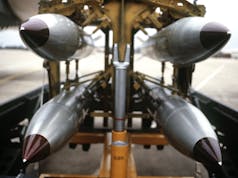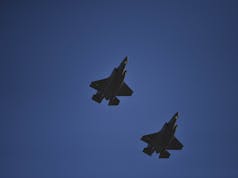A Reaper operated over south-eastern Syria, where it used a Hellfire to destroy an anti-aircraft gun mounted on a truck, around 40 miles north of Al Tanf.
The MQ-9 Reaper is an unmanned aerial vehicle capable of remote controlled or autonomous flight operations, developed by General Atomics Aeronautical Systems primarily for the United States Air Force.
The MQ-9 is the first hunter-killer UAV designed for long-endurance, high-altitude surveillance.
In 2006, the then–Chief of Staff of the United States Air Force General T. Michael Moseley said: “We’ve moved from using UAVs primarily in intelligence, surveillance, and reconnaissance roles before Operation Iraqi Freedom, to a true hunter-killer role with the Reaper.”
The MQ-9 is a larger, heavier, and more capable aircraft than the earlier General Atomics MQ-1 Predator; it can be controlled by the same ground systems used to control MQ-1s. The greater power allows the Reaper to carry 15 times more ordnance payload and cruise at about three times the speed of the MQ-1.
Operation Shader is the operational code name given to the British participation in the ongoing military intervention against the Islamic State.
The operation began in Iraq on the 26th of September 2014, following a formal request for assistance by the Iraqi government.
Prior to this, the Royal Air Force had been engaged in a humanitarian relief effort over Mount Sinjar, which involved multiple aid airdrops by transport aircraft and the airlifting of displaced refugees.
By October 2014, the intervention had extended onto Syria with the Royal Air Force only mandated to conduct surveillance flights over the country.
In December 2015, the House of Commons approved British airstrikes against IS in Syria. The UK is one of several countries directly involved in the ongoing Syrian conflict that started in March 2011, utilising Tornado, Typhoon and Reaper aircraft.
By June 2016, the Ministry of Defence had announced that over 1,000 personnel were engaged in theatre and that the Royal Air Force had conducted around 900 airstrikes, flying over 2,200 sorties, killing almost 1,000 Islamic State fighters.













Just how cost effective that would be would be interesting compared to a strafe with something more conventional.